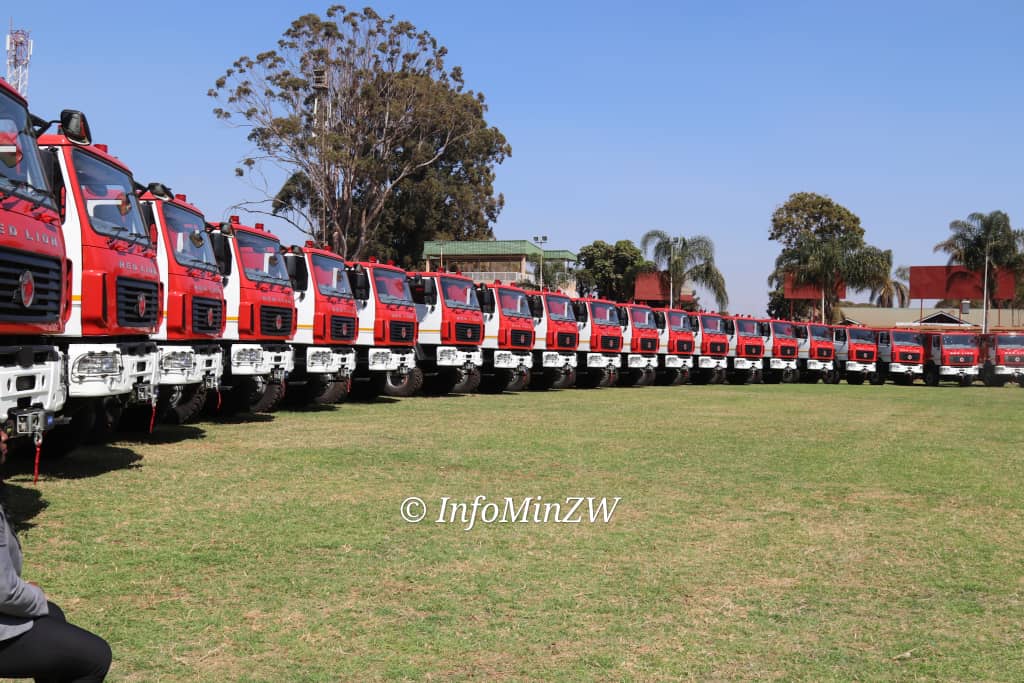Gwanda teenagers dropping out of school for gold panning
Share

Gwanda (New Ziana) – Bongani Mthombeni, 15, dangles a bunch of United States dollars to his peers at a shopping centre in Gwanda’s sprawling Skitskop high density suburb.
As if that is not enough, he does not only flash his hard earned cash, but also taunts them that being in school does not pay as much as illegal gold mining in the town, and its environs.
Bongani dropped out of school soon after completing his grade 7 to pursue illegal gold mining in the mineral-rich lands of the small mining town.
Having lost both parents, the guardians could not do much to force him back to school as his two older siblings were doing well through illegal gold panning.
Bongani’s case is a graphic illustration of how hordes of teenagers have dropped out of school in areas around the gold mining town, a development experts say will have long term negative effects on the local community.
“Gwanda is one place that is different from many others in the sense that we have children who are growing without proper parenting, for example some lost their parents due to HIV Aids, since this area is one of the most affected.
“On the other hand, we have parents who both left for South Africa in search of work. So here we are talking of child headed families being common here,” said Sibonakele Nyoni 21, a single mother of one.
Nyoni, whose two young brothers dropped out of school before completing their ‘O’ Levels, is convinced that the challenges the economy is going through has had a negative effect on the young generation.
“I think the situation could have been different if the economy was well because we could be having less people thriving on illegal panning. They could be doing better professional jobs, but since there are no jobs, people are forced to join gold panning or emigrate to South Africa in search of work.
“In other words we are living in a community where children don’t get inspired by education but by illegal gold panning and border jumping because there is quick money,” she said.
Most of the luxurious big houses, shops and other businesses in Gwanda town are owned by those in the gold business, be it legal or illegal, which helps to lure the young generation into leaving school to join the illegal mining bandwagon.
According to a 2018 Zimbabwe Vulnerability Assessment Committee (ZimVAC) report, Gwanda District had the highest number of school dropouts in Matabeleland South province standing at 1 130, of which 455 were from primary schools and 675 from secondary.
“A total of 492 girls from both primary and secondary schools left school, whereas 638 boys who are also supposed to be at school have since dropped out.
“The district has been hit by severe food shortages. A lot of mining activities are taking place in Gwanda and that contributed to children leaving school to look for money in the mines,” read the report in part.
As a result, poverty has remained one of the main drivers of school drop outs in the district, forcing teenagers to engage in a number of unwarranted activities, such as illegal gold panning, prostitution, theft, drug abuse and early marriages.
Gwanda Residents Association (GRA) chairman Bekezela Maduma Fuzwayo said young people, mostly 15 to 18 years, have quit school to go into artisanal mining for various reasons.
“In most cases it is just for the love of the money which they see from wrong role models in older miners who come into the communities showing off sometimes huge takings from the mines. At times some children end up in mining when parents genuinely run out of resources to help the kids through their education,” he said.
He said the new Education Act should come in and enforce the new law that no child of school going age should be out of school for whatever reason.
“We have also been making calls for the mining legislation to strictly prohibit use of child labour in the mines and police to remove all children found taking part in any artisanal or illegal mining.”
A senior teacher at a local secondary school, who refused to be named
for professional reasons, said the sad development was a ticking time bomb.
“Education has always been the backbone of any nation. Zimbabwe is what it is because it has professionals whose brains are even sought after by the entire world because of education. But then we have the situation in Gwanda where the number of school drop outs is worrisome due to the proximity to gold.
“We may not see it now but in the long run, you can imagine all Gwanda offices being manned by people from other places. We need to have our own nurses, teachers, doctors and professors. We have a teachers college and a university here but sadly only people from elsewhere will utilise these facilities, which defeats the whole process of having them close to us here,” the teacher noted.
The teacher said there was need for stakeholders to come together and address the problem, adding that government should also extend efforts such as the Basic Education Assistance Module to cater for as wide a population as possible.
Ward nine councillor, Thulani Moyo, expressed sadness at the growing number of young people of school going age involved in illegal gold mining.
“The situation is pathetic because the district is being robbed of the future leaders, there will be no doctors, teachers and engineers and all this is due to e economic situation, children no longer have motivation of going to school since their peers will be making quick bucks of illegal panning,” he said.
New Ziana








